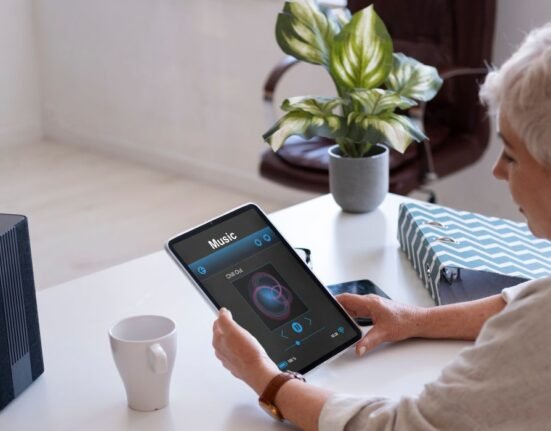A chatbot is a computer program designed to communicate and work with people in spoken, written, and graphic languages. Because of the advancements in the AI (artificial intelligence) and machine learning domains, chatbots have become more common in a variety of businesses, including retailing, customer support, education, and so on. Currently, Facebook Messenger has over 300,000 text-based chatbots available. The main use of chatbots has been in profitable businesses and for commercial objectives. More recent studies, however, have shown that chatbots hold great potential for treating patients and supporting them conveniently and affordably in the healthcare sector.
What Do We Understand by Chat-bots?
Chatbots, which are often referred to as conversational user interfaces, are devices that mimic human communication via text or speech using artificial intelligence and machine learning. Computers, smart speakers like Google Home and Amazon Alexa, and mobile devices all use voice-based chatbots. Text-based chatbots may be accessed via a variety of platforms, including web or mobile applications, Telegram, and Messenger. The user can utilize “quick replies” (buttons) or text to communicate with the chatbot.
According to Clinical Psychologist and mental health professional Aanchal Choudhary, chatbots can provide a non-judgmental space for individuals to express their thoughts and feelings. While it’s not a replacement for professional therapy, it can offer support and guidance to the ones who aren’t comfortable at first go. It cannot complement traditional therapeutic approaches, but play a valuable role in promoting mental health and well-being. E.g.: Once my pt. Took help of chat gpt to identify the current symptoms she was having and the chat gpt responded- “Please talk to a mental health professional for help and advice . Do not rely on chat gpt for diagnosis”.
Chatbots and Mental Health
Chatbots may promote communication with those who have historically been unwilling to seek out health-related assistance due to stigmatization in the area of mental health. It’s a new technology that has the potential to increase customer engagement and adherence to mobile mental health apps. Research has been done on chatbot efficacy for expressive writing and self-disclosure. Chatbots have been used to provide young people with mental health concerns with a variety of social support services, including informational, emotional, instrumental, and evaluation help. Furthermore, chatbots have been developed to teach people in need about mental health and other stigmatized subjects. New research indicates that users are open to using chatbots to help with a range of mental health concerns, and they have showed early promise in improving both mental and physical health outcomes.
A variety of tasks, including support, screening, psychological education, therapeutic intervention, tracking behaviour improvements, and relapse prevention, have been carried out by chatbots in digital mental health interventions. We go over a few of the most popular functions in brief:
1) Diagnosis
Chatbots can reduce healthcare professionals’ workload by diagnosing and triaging mental health concerns and prioritizing in-person services. They can identify symptoms, predict diseases, and recommend treatments. Despite the controversy, 51% of mental health professionals find this application problematic. However, AI can identify at-risk individuals, enabling earlier intervention and reducing future problems.
Also Read: Can Chabot replace human therapists?

Research on chatbots’ effectiveness in diagnosing mental health conditions is limited, but preliminary evidence suggests moderate agreement between the chatbot’s diagnosis and vignette conditions. However, agreement is higher when psychotherapists enter symptoms, not when laypersons do. AI can also predict mental health conditions like psychosis and ADHD with high accuracy.
2) Content Delivery
Chatbots are commonly used to deliver content and administer therapeutic interventions without high therapeutic competence. Some use Natural Language Processing (NLP) to simulate therapeutic conversational styles, while others use cognitive behavioral therapy (CBT). Some chatbots use acceptance and commitment therapy, mindfulness, or other therapeutic approaches. However, these methods involve greater risk and require more expertise.
3) Management of Symptoms
Chatbots are being used as personal health assistants to monitor a patient’s progress and track symptoms and behaviors. They can facilitate the transfer of therapeutic content into daily lives, assess progress, and provide personalized support. AI can improve the personalization of care by facilitating efficient storage and processing of user information. This can help improve self-management of symptoms and reduce the risk of relapse, especially among those without access to a mental health professional. Chatbots can also be used after traditional in-person interventions or in outpatient settings, reminding clients of treatment-related skills and practices.
Also Read: How Is AI Helping In Mindfulness?
Limitations of Chat-bots in Mental Health Services
According to industrial and organizational psychologist, Dhanashree Bhide, the use of AI is increasing as people prefer to do things online without requiring them to go anywhere, even if it is about their mental health. That is why people are using AI and chatbots at their convenience because they are easy to access. She explains that the best way to prevent the impact of chatbots on mental health is to promote questioners and checkboxes where people can score some points on their mental health, which helps them approach a mental health professional.
Although chatbots have been gaining attention in the realm of mental health, they have some limitations. They may struggle to understand human language and the complexities involved in mental health problems.
This is particularly concerning for suicide prevention, where there is a lack of evidence-based data to support chatbot use in such areas. Privacy is another major concern for users of these applications, and developers need to ensure that data sharing does not expose users to privacy risks. Poor adherence to digital mental health interventions is another issue, and vulnerable individuals may begin to rely on them too much, leading to anxiety when these applications are not available. There is a need for a wider discussion about how mental health services can and should encourage the safe and ethical use of chatbots.
Also Read: The Friend-And-Foe Nature of Technology in Regard to Mental Health

A recent study by Palanica et al. found that 70% of physicians expressed concerns about the risks associated with healthcare chatbots for patients, particularly in terms of understanding the complex language associated with mental health crises. Therefore, developers should focus on understanding the needs of those in crisis rather than developing state-of-the-art technology.
Pros and Cons of Integrating Chatbots in Mental Health Care:
Despite the increased development and use of chatbots, it is unclear why professionals and experts in mental health would use them and encourage their use by their clients. A survey by Palanica et al. concluded that chatbots can have a beneficial role in healthcare support, but they currently do not have the expert medical knowledge needed to replace the role of traditional physicians. The effectiveness of chatbot use in the area of mental health has not been fully researched, and more education on evidence-based research surrounding chatbots is necessary.
According to clinical psychologist and mental health expert Pranami Bordoloi, AI is not very reliable for seeking mental health care because people can better share their experiences with humans and mental health experts in comparison to chatbots. Human-to-human interaction is most important in mental health treatment.
Clinicians from the United States suggest that chatbots may be important in the self-management of health, but they are concerned that they do not understand human emotions and cannot provide a diagnosis. While chatbots may play a role in supporting, motivating, and coaching patients, they are limited by their inability to display or understand human emotion. More education on evidence-based research surrounding chatbots is necessary to ensure their effective use in mental health care.
References+
- Boucher, E. M., Harake, N. R., Ward, H. E., Stoeckl, S. E., Vargas, J., Minkel, J., … Zilca, R. (2021). Artificially intelligent chatbots in digital mental health interventions: a review. Expert Review of Medical Devices, 18(sup1), 37–49.
- Sweeney, C., Potts, C., Ennis, E., Bond, R., Mulvenna, M. D., O’neill, S., … Mctear, M. F. (2021). Can chatbots help support a person’s mental health? Perceptions and views from mental healthcare professionals and experts. ACM Transactions on Computing for Healthcare, 2(3), 1–15.
- Haque, M. D. R., & Rubya, S. (2023). An Overview of Chatbot-Based Mobile Mental Health Apps: Insights from App Description and User Reviews. JMIR mHealth and uHealth, 11, e44838.













Leave feedback about this